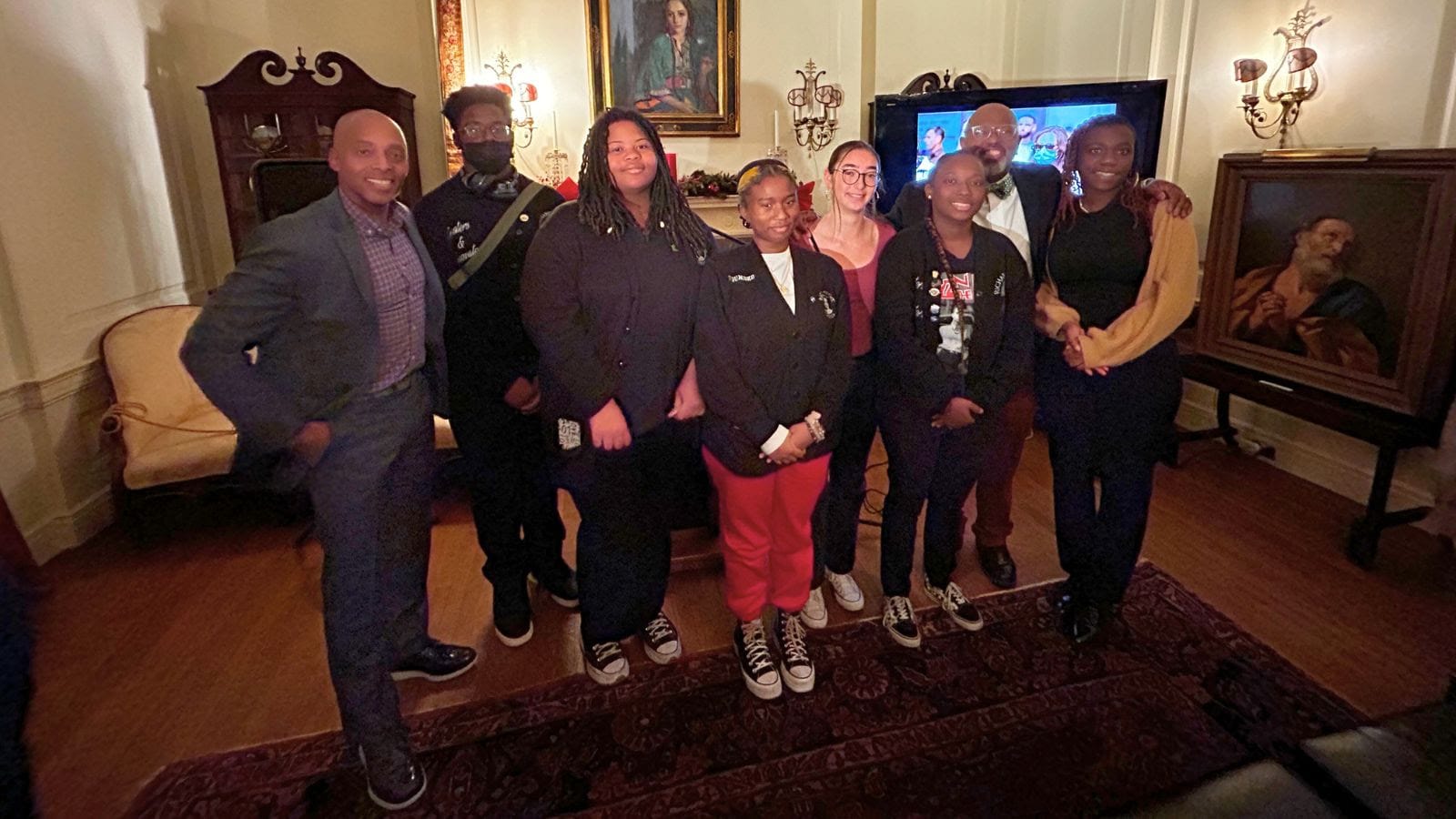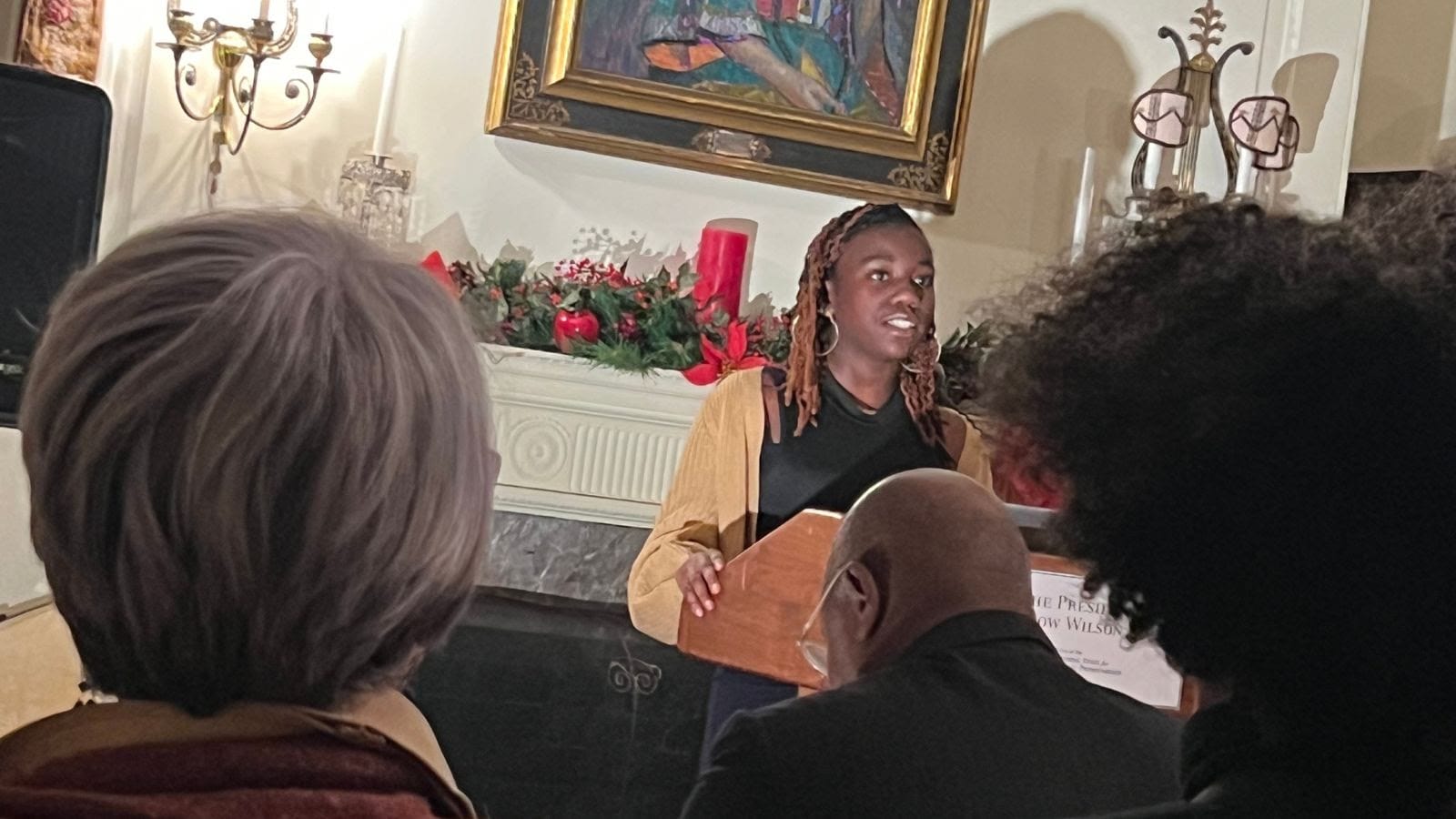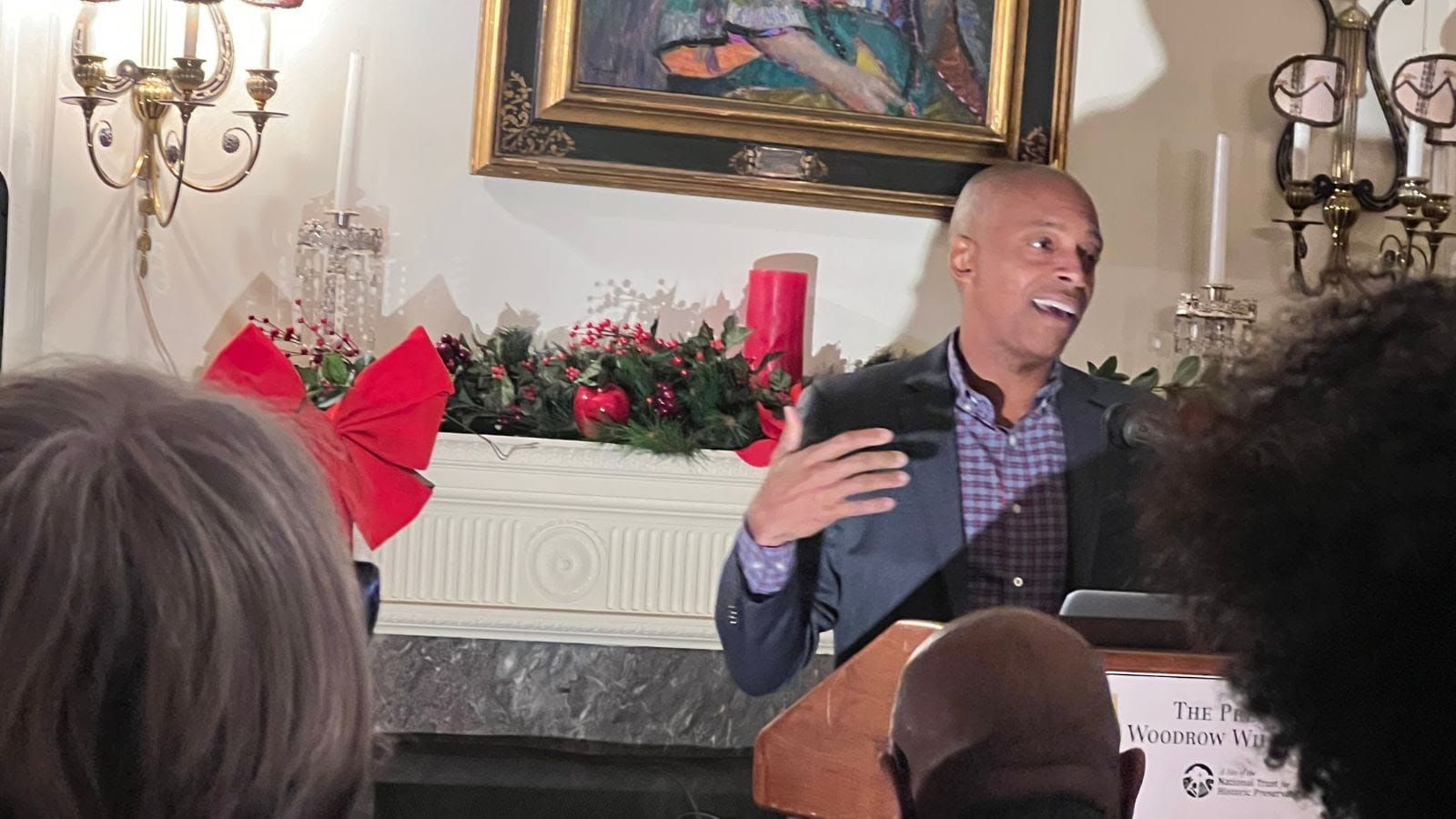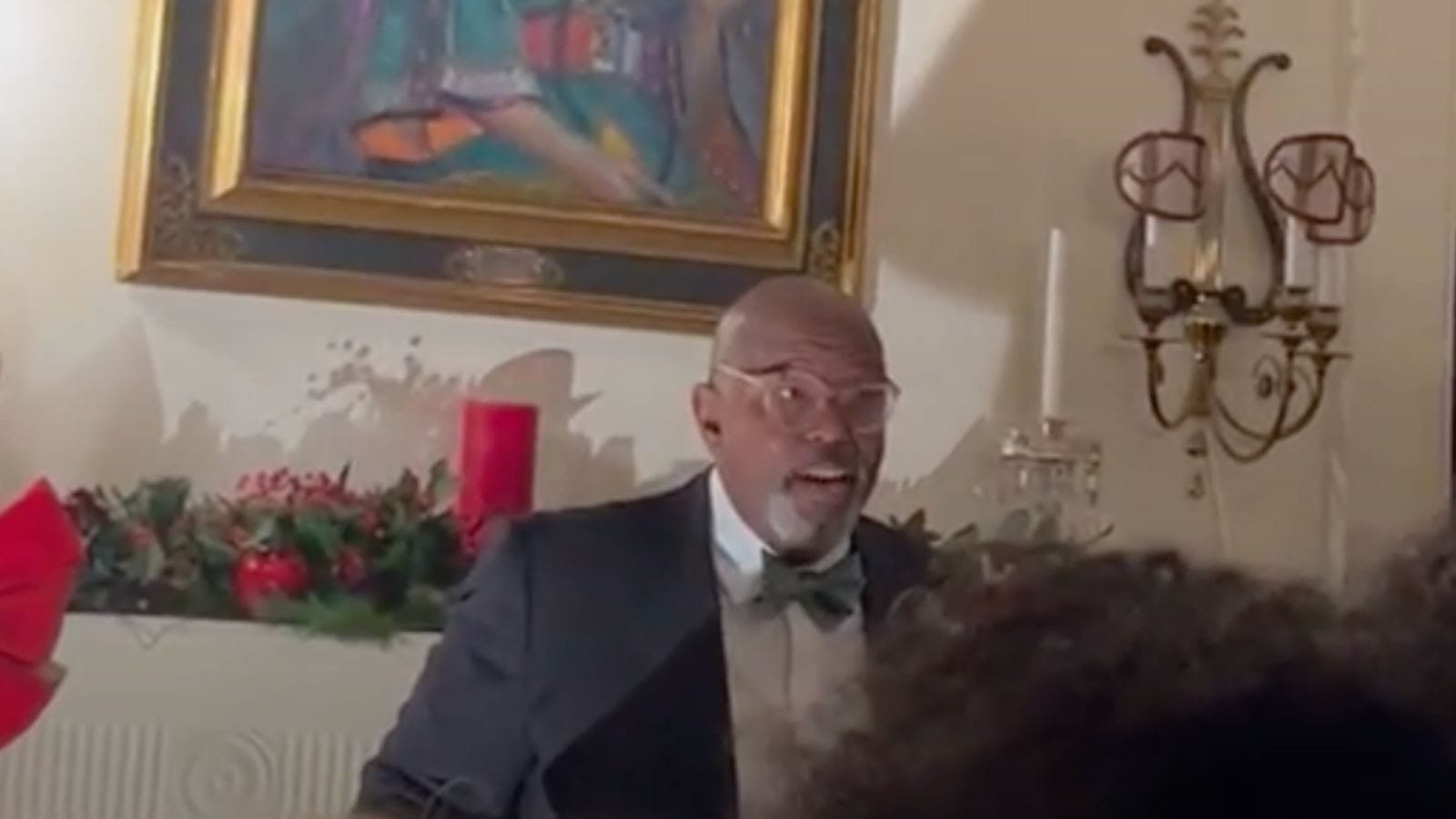
Hooray for Monday is a weekly blog filled with questions, ideas, reflections, and actions we can all take to remodel the school experience for students. Prefer audio? Listen to the Hooray For Monday podcast! Available on your favorite platforms here.

December 4, 2023
By Jenna Fournel, Director of Teaching and Learning
Last Wednesday evening, Dr. Khalil Muhammad, a professor of history, race, and public policy at Harvard Kennedy School, led a talk at Woodrow Wilson House on “the deep history behind the backlash against the rigorous teaching of American history, inclusive of the long traditions of anti-Black racism and resistance to it.” Cosby Hunt, Inspired Teaching’s Director of Youth Progamming, Real World History instructor, and teacher at Theodore Roosevelt High School in Washington, DC, was joined by Real World History student Nakyia Wimbish in moderating the event.

At the end of Dr. Muhammad’s lecture, another high school student from the Real World History class in the audience asked if she and her peers needed to worry about their future if the anti-woke movement (which is behind a massive wave of censorship and backlash against the teaching of history right now) ultimately wins.
Dr. Muhammad’s answer was “yes,” and he apologized for the harshness of that reality but called on her and her classmates to respond with action.
“We have produced a nation where nobody speaks the truth,” he said. “We lean too much on hope. But I trust you enough to know that if you learn good information, you’re going to make wise decisions. I believe you’re better served knowing this… so you can do better.”

This call to action is echoed in an article Dr. Muhammad wrote along with Erica Licht for the Fall issue of the Learning for Justice Magazine on A Call for Anti-Bias Education.
The article notes:
An honest education is the minimum we should strive for as educators, one that is rigorous, too, and demands the historical truth-telling of Black history, Indigenous history, and the history of Asian Americans, Latinx Americans, Middle Eastern Americans and other marginalized groups. An honest education centers these histories and makes them integral to the core concepts of learning. At best, this education becomes a foundational component of critical thinking—not only teaching these histories but also asking students to consider and understand ideas such as:
-
What does this mean for me and for my friends?
-
What is my responsibility for ensuring I do no harm, consider the well-being of others and promote equity and democratic values?

Dr. Muhammad was emphatic that education is how we get to a better future. He called out the bravery it takes right now for teachers to stand in defense of the truth, but he also framed this as a choice and an opportunity. Just as we ask our children to consider the role they’ll play as citizens in the world, it’s worth asking ourselves that last question: What is my responsibility for ensuring I do no harm, consider the well-being of others and promote equity and democratic values?
Listen to this week’s podcast for a conversation with Cosby as he reflects on his observations from the event and its potential impact on his students.
For additional insights, resources, and information on Inspired Teaching teacher and youth programming, subscribe to the Hooray For Monday newsletter!
